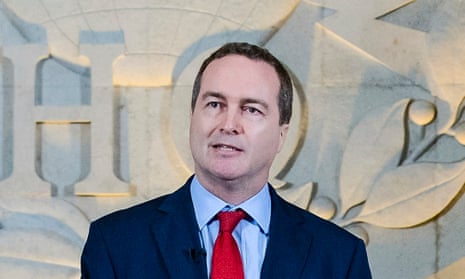Parents should be encouraging their children to spend more time online in order to “save the country,” the former head of GCHQ has said.
Robert Hannigan, who was head of Britain’s surveillance agency between 2014 and 2017, said that the UK was struggling to keep up with competitors when it came to cyber skills.
He said parents should not feel guilty if teenagers spend hours of their summer holidays in front of a screen.
“The assumption that time online or in front of a screen is life wasted needs challenging,” Hannigan said. “It is driven by fear.”
The call comes days after the children’s commissioner warned parents that they should intervene to stop their children overusing social media and consuming time online “like junk food”.
In an interview with the Observer, Anne Longfield said that parents should “step up” and be proactive in stopping their children from bingeing on the internet during the summer holidays.
Writing in the Telegraph, Hannigan disagreed. “If you are spending a disproportionate amount of your holiday unsuccessfully attempting to separate your children from wifi or their digital devices, do not despair.
“Your poor parenting may be helping them and saving the country.”
The opinions come after a report said that children in all age groups are spending ever-longer periods online, according to Ofcom. Children aged five to 15 are spending 15 hours a week online.
Hannigan argues that young people need to explore the digital world just as they explore the physical world, in order to fully develop the kinds of skills both the country and they as individuals will need in the future.
He said: “This country is desperately short of engineers and computer scientists, and lacks the broad ‘cyber skills’ needed now, never mind in the next 20 years. The baseline of understanding is too low and often behind our competitors.
“If we are to capitalise on the explosion of data that will come through the ‘internet of things’, and the arrival of artificial intelligence and machine learning, we need young people who have been allowed to behave like engineers: to explore, break things and put them together.
“Arguably that is what children always did in their summer holidays. The difference today is that they will want to explore, experiment and break things digitally.”
He also said that parents should attempt to catch up and improve their own cyber skills, suggesting they buy a Raspberry Pi.
“You could build it with your children and learn at least the concept of computer coding; there are plenty of free guides on the web,” he said.

Comments (…)
Sign in or create your Guardian account to join the discussion